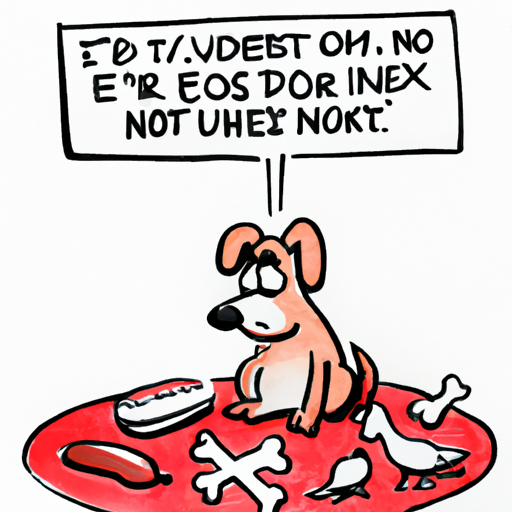As a caretaker, your primary focus is to provide the best care possible. When it comes to your canine companions, their diet plays a crucial role in their overall health and well-being. You might be inclined to share a bit of your dinner with your furry friend, or maybe you’re considering switching them to a raw or homemade diet. Either way, it’s important to know what meat your dog should not eat to ensure their safety and health.
H2: The Dangers of Raw Meat
Raw meat can be a contentious topic among dog owners. While some argue that it’s the most natural diet for dogs, others point out the potential risks. Raw meat can carry harmful bacteria like E.Coli and Salmonella, which can be dangerous to both dogs and humans.
Additionally, not all raw meats provide the necessary nutrients for your dog. A diet lacking in essential nutrients can lead to health issues over time. Here’s a quick reference table of some raw meats and their potential risks:
| Meat Type | Potential Risk |
|---|---|
| Chicken | Salmonella |
| Pork | Trichinosis |
| Beef | E. Coli |
H2: Processed Meats and Dogs
Processed meats might be convenient for us, but they’re not the best choice for our dogs. These meats, such as hot dogs, bacon, and deli meats, contain high levels of salt and other preservatives that can be detrimental to your dog’s health.
Over time, a diet high in sodium can lead to various health problems for dogs, including:
- Heart disease
- Kidney damage
- High blood pressure
H2: The Issue with Cooked Bones
While dogs may love to chew on bones, not all bones are safe. Cooked bones, especially those from poultry, can easily splinter and become lodged in your dog’s throat or digestive tract. This can lead to serious injuries and even be fatal.
Instead, consider these safer alternatives for your dog to chew on:
- Rubber chew toys
- Rawhide bones
- Dental chews
H2: Avoiding Fatty Meats
Just as fatty foods aren’t good for us, they’re also not good for our dogs. Fatty meats, such as pork belly or rib-eye steak, can lead to pancreatitis in dogs, a painful and potentially life-threatening condition.
Remember, a lean diet is a healthy diet. Opt for lean meats like chicken breast or turkey for your dog’s meals.
H2: Meat By-Products: What Are They Really?
Meat by-products are often found in commercial dog food, and they can be concerning. These are the parts of the animal that aren’t typically consumed by humans, such as organs and bones. While not all by-products are bad, it’s important to know what’s in your dog’s food. Look for brands that clearly list their ingredients, and avoid those that use vague terms like “meat by-product.”
Frequently Asked Questions
Q: Can my dog eat fish?
A: Yes, but it should be cooked thoroughly to kill any parasites.
Q: Are there any safe raw meats for dogs?
A: Some advocate for raw diets, but always consult with your vet first.
Q: Can dogs be vegetarian or vegan?
A: Dogs can technically survive on a vegetarian or vegan diet, but it can be challenging to ensure they get all the nutrients they need. Always consult a vet before making this decision.
Q: What about raw eggs for dogs?
A: Raw eggs pose a risk of Salmonella, and the raw egg whites can interfere with the absorption of certain nutrients in dogs.
Remember, when in doubt, it’s always best to consult with a trusted vet before introducing new foods into your dog’s diet. As caregivers, our goal is to keep our furry friends safe, healthy, and happy.



